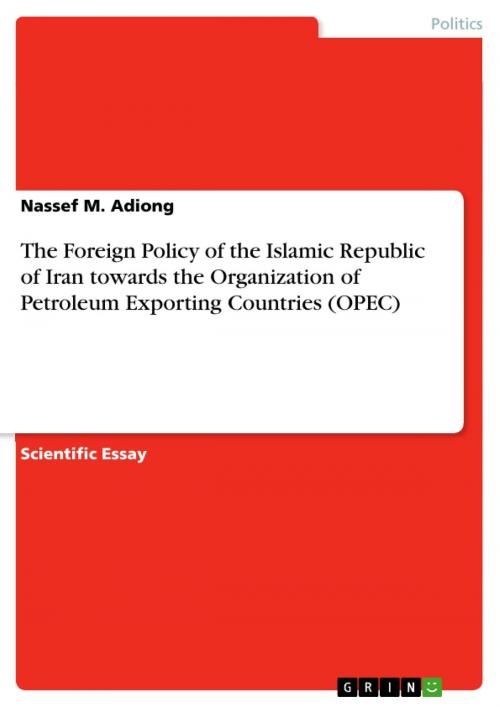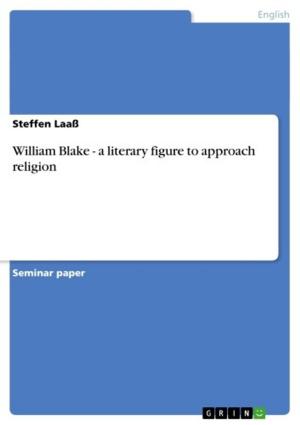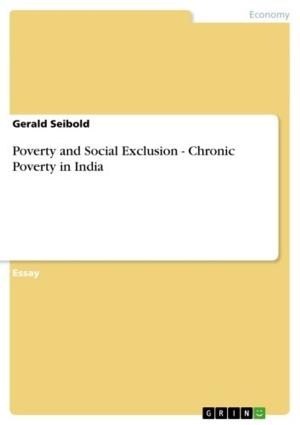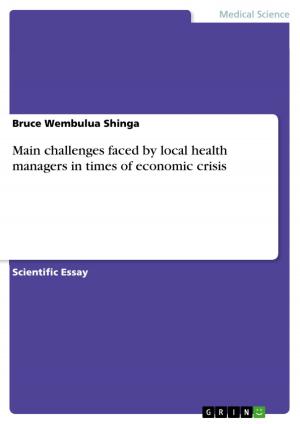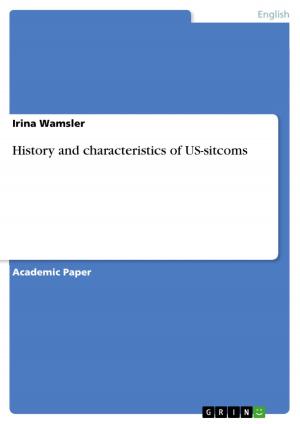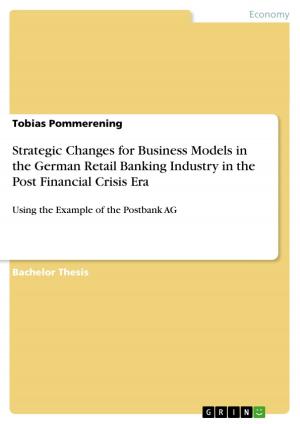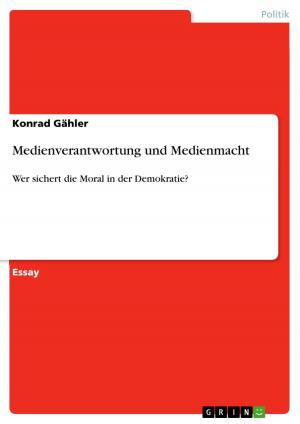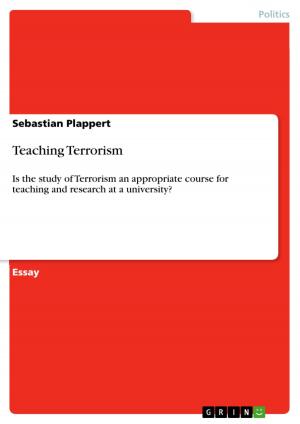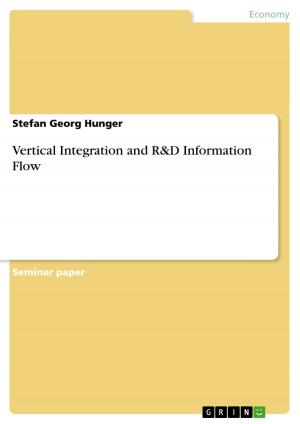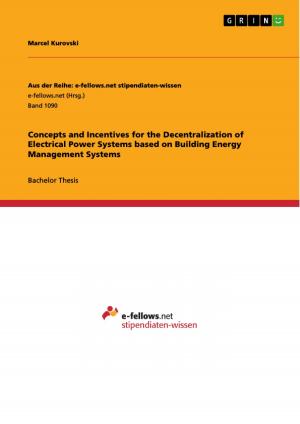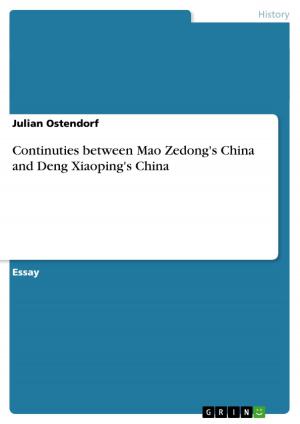The Foreign Policy of the Islamic Republic of Iran towards the Organization of Petroleum Exporting Countries (OPEC)
Nonfiction, Social & Cultural Studies, Political Science, International, International Relations| Author: | Nassef M. Adiong | ISBN: | 9783640495009 |
| Publisher: | GRIN Publishing | Publication: | December 16, 2009 |
| Imprint: | GRIN Publishing | Language: | English |
| Author: | Nassef M. Adiong |
| ISBN: | 9783640495009 |
| Publisher: | GRIN Publishing |
| Publication: | December 16, 2009 |
| Imprint: | GRIN Publishing |
| Language: | English |
Scientific Essay from the year 2008 in the subject Politics - International Politics - Region: Near East, Near Orient, grade: A+, Technological University of the Philippines (Department of Political Science), course: Comparative Foreign Policy, language: English, abstract: The same peculiarity as the first paper was entailed subject to delimitations provided by the syllabus, this study will entirely focus on oil security, its political and economic adversaries concomitant with the foreign policy of Iran towards OPEC. It will explain the dynamics and mechanisms on how policies in Iran are extensively constructed especially in dealings with interstate relations juxtapose to non-state actor like OPEC. The proponent will concentrate on four aspects: 1.Units of Analysis - intuitively investigate the actors (political elites and eminent religious personalities involved in the making of the foreign policy), the international environment, and varied situations occurred in events that are intertwined or connected in planning and organizing the policies to be implemented. 2.Determinants and Processes - in this aspect, the researcher will expound two classifications, the foreign determinants and the domestic determinants that immensely affect the doings of a foreign policy maker, discussing what are the processes or systems afflicted in each determinant and how do they differ or paralleled. 3.The Acts - will look on the decisions made; observe mobilization of resources and the application of instruments and techniques in advancing Iranian interest on oil security. 4.Policies and Consequences - if it is patterned in insulation, engagement or expansion policies as oriented by options in foreign policy discussed in the class and if these factors are congruent to any model appropriate for its attached consequences, if there are patterns in consistency with Iranians foreign policy? Likewise, this will be surveyed through gathered secondary resources and may apply methodology and theoretical framework in the field of international politics or international political economy. The purpose of this investigation is that oil security is a pressing issue and delicate yet complex geopolitical theme especially in the world today, the proponent is hoping that this paper may be added in the realm of Middle Eastern literature in consonance to conflict management scheme.
Nassef is a lifelong learner of comparative study between Islam and International Relations. He created the IR-IS Research Cohort on December 2012 that became Co-IRIS (International Relations and Islamic Studies Research Cohort) on November 2013. In addition to his service to profession, he founded the Philippine International Studies Organization (PHISO) on September 2015.
Scientific Essay from the year 2008 in the subject Politics - International Politics - Region: Near East, Near Orient, grade: A+, Technological University of the Philippines (Department of Political Science), course: Comparative Foreign Policy, language: English, abstract: The same peculiarity as the first paper was entailed subject to delimitations provided by the syllabus, this study will entirely focus on oil security, its political and economic adversaries concomitant with the foreign policy of Iran towards OPEC. It will explain the dynamics and mechanisms on how policies in Iran are extensively constructed especially in dealings with interstate relations juxtapose to non-state actor like OPEC. The proponent will concentrate on four aspects: 1.Units of Analysis - intuitively investigate the actors (political elites and eminent religious personalities involved in the making of the foreign policy), the international environment, and varied situations occurred in events that are intertwined or connected in planning and organizing the policies to be implemented. 2.Determinants and Processes - in this aspect, the researcher will expound two classifications, the foreign determinants and the domestic determinants that immensely affect the doings of a foreign policy maker, discussing what are the processes or systems afflicted in each determinant and how do they differ or paralleled. 3.The Acts - will look on the decisions made; observe mobilization of resources and the application of instruments and techniques in advancing Iranian interest on oil security. 4.Policies and Consequences - if it is patterned in insulation, engagement or expansion policies as oriented by options in foreign policy discussed in the class and if these factors are congruent to any model appropriate for its attached consequences, if there are patterns in consistency with Iranians foreign policy? Likewise, this will be surveyed through gathered secondary resources and may apply methodology and theoretical framework in the field of international politics or international political economy. The purpose of this investigation is that oil security is a pressing issue and delicate yet complex geopolitical theme especially in the world today, the proponent is hoping that this paper may be added in the realm of Middle Eastern literature in consonance to conflict management scheme.
Nassef is a lifelong learner of comparative study between Islam and International Relations. He created the IR-IS Research Cohort on December 2012 that became Co-IRIS (International Relations and Islamic Studies Research Cohort) on November 2013. In addition to his service to profession, he founded the Philippine International Studies Organization (PHISO) on September 2015.
